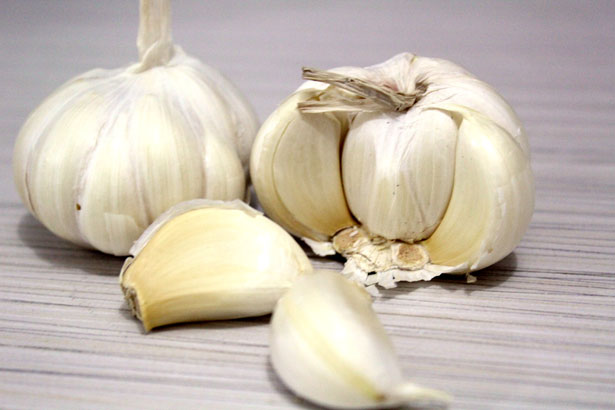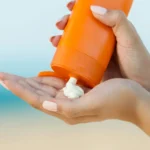 |
| Photo from bestcardiac.com |
High blood pressure (hypertension) is a common condition in which the blood’s long-term force against your artery walls is high enough to cause health problems such as heart disease.
Blood pressure is determined by both the amount of blood pumped by your heart and the resistance to blood flow in your arteries. The higher your blood pressure, the more blood your heart pumps and the narrower your arteries. Blood pressure is measured in millimeters of mercury (mm Hg). It has two digits.
- Top number (systolic pressure): The first number, or upper number, represents the pressure in your arteries when your heart beats.
- Bottom number (diastolic pressure): The second, or lower, number represents the pressure in your arteries between heartbeats.
High blood pressure can be present for years without causing any symptoms. High blood pressure that is uncontrolled increases your risk of serious health problems such as heart attack and stroke. High blood pressure, fortunately, is easily detectable. And, once you’ve determined that you have high blood pressure, you can work with your doctor to get it under control.
WHAT ARE THE SYMPTOMS OF HYPERTENSION?
- sweating
- anxiety
- sleeping difficulties
- blushing
WHAT ARE THE CAUSES OF HYPERTENSION?
Primary (essential) hypertension
Secondary hypertension
- Sleep apnea (obstructive sleep apnea)
- Kidney disease
- Adrenal gland tumors
- Thyroid issues
- Certain birth defects (congenital) in blood vessels
- Certain drugs, like birth control pills, cold remedies, decongestants, over-the-counter pain relievers, and some prescription drugs
- Illegal drugs, like cocaine and amphetamines
WHAT ARE THE RISK FACTORS OF HYPERTENSION?
- Age: As you get older, your chances of developing high blood pressure rise. High blood pressure is more common in men until about the age of 64. After the age of 65, women are more likely to develop high blood pressure.
- Race: High blood pressure is especially common in people of African descent, often developing at a younger age than in whites. Serious complications, such as stroke, heart attack, and kidney failure, are also more common in African-Americans.
- Family history: High blood pressure is a trait that runs in families.
- Tobacco usage: Smoking or chewing tobacco not only temporarily raises your blood pressure, but the chemicals in tobacco can also damage the lining of your artery walls. This can cause artery narrowing and raise your risk of heart disease. Secondhand smoke can also increase your risk of developing heart disease.
- Excessive salt (sodium) in your diet: Excess sodium in your diet can cause your body to retain fluid, raising your blood pressure.
- Obesity or overweight: The more blood you need to supply oxygen and nutrients to your tissues, the more weight you have. The pressure on your artery walls increases as the amount of blood flowing through your blood vessels increases.
- Being physically inactive: People who are sedentary have higher heart rates. The faster your heart beats, the harder it has to work with each contraction and the greater the force on your arteries. Obesity is also increased by a lack of physical activity.
- Potassium deficiency in the diet: Potassium aids in the balance of sodium in your cells. A proper potassium balance is essential for good heart health. If you don’t get enough potassium in your diet, or if you lose too much potassium as a result of dehydration or other health problems, sodium can build up in your blood.
- Stress: High levels of stress can cause an increase in blood pressure for a short period of time. Stress-related behaviors such as eating more, smoking, or drinking alcohol can cause blood pressure to rise even higher.
- Excessive alcohol consumption: Heavy drinking can harm your heart over time. More than one drink per day for women and more than two drinks per day for men may raise blood pressure.
If you must consume alcohol, do so in moderation. That equates to up to one drink per day for women and two drinks per day for men in healthy adults. A drink is defined as 12 ounces of beer, 5 ounces of wine, or 1.5 ounces of 80-proof liquor.
- Certain chronic diseases: Certain chronic conditions, such as kidney disease, diabetes, and sleep apnea, may also increase your risk of high blood pressure.
WHAT ARE THE COMPLICATIONS OF HYPERTENSION?
HOW IS HYPERTENSION DIAGNOSED?
- Normal blood pressure: If your blood pressure is less than 120/80 mm Hg, it is considered normal.
- High blood pressure: Elevated blood pressure is defined as a systolic pressure of 120 to 129 mm Hg and a diastolic pressure of less than (but not more than) 80 mm Hg. Unless steps are taken to control blood pressure, elevated blood pressure tends to worsen over time. Prehypertension is another term for high blood pressure.
- Stage 1 hypertension: A systolic pressure of 130 to 139 mm Hg or a diastolic pressure of 80 to 89 mm Hg is considered stage 1 hypertension.
- Stage 2 hypertension: Stage 2 hypertension is defined as a systolic pressure of 140 mm Hg or higher or a diastolic pressure of 90 mm Hg or higher.
- Hypertensive crisis: A blood pressure reading of more than 180/120 mm Hg indicates an emergency that necessitates immediate medical attention. If you get this result when taking your blood pressure at home, wait five minutes before retesting. If your blood pressure remains this high, see your doctor right away. Call 911 or your local emergency medical number if you also have chest pain, vision problems, numbness or weakness, difficulty breathing, or any other signs and symptoms of a stroke or heart attack.
AT-HOME BLOOD PRESSURE MONITORING
HYPERTENSION TESTS
- Ambulatory monitoring: This 24-hour blood pressure monitoring test determines whether you have high blood pressure. This test device measures your blood pressure at regular intervals over a 24-hour period, providing a more accurate picture of blood pressure changes during an average day and night. These devices, however, are not available in all medical centers and may not be reimbursed.
- Laboratory tests: A urine test (urinalysis) and blood tests, including a cholesterol test, may be recommended by your doctor.
- Electrocardiogram (ECG or EKG): This quick and painless test measures the electrical activity of your heart.
- Echocardiogram: Depending on your signs and symptoms as well as the results of your tests, your doctor may order an echocardiogram to look for additional signs of heart disease. An echocardiogram creates images of the heart using sound waves.
WHAT ARE THE TREATMENTS FOR HYPERTENSION?
- Eating a heart-healthy, low-salt diet
- Participating in regular physical activity
- Keeping a healthy weight or losing weight if you are overweight or obese
- Limiting your alcohol consumption
Medications
- You are a 65-year-old healthy adult.
- You’re a healthy adult under the age of 65 with a 10% or higher chance of developing cardiovascular disease in the next ten years.
- You are suffering from chronic kidney disease, diabetes, or coronary artery disease.
- Diuretics: Diuretics, also known as water pills, are medications that aid in the elimination of sodium and water from the body by the kidneys. These medications are frequently the first to be tried to treat high blood pressure.
Diuretics are classified into three types: thiazide, loop, and potassium sparing. Which one your doctor recommends is determined by your blood pressure readings as well as any other medical conditions you may have, such as kidney disease or heart failure. Chlorthalidone, hydrochlorothiazide (Microzide), and other diuretics are commonly used to treat high blood pressure.
Increased urination is a common side effect of diuretics, which can lower potassium levels. If you have a low potassium level, your doctor may add a potassium-sparing diuretic to your treatment, such as triamterene (Dyazide, Maxide) or spironolactone (Aldactone).
- Angiotensin-converting enzyme (ACE) inhibitors: These medications, which include lisinopril (Prinivil, Zestril), benazepril (Lotensin), captopril, and others, help relax blood vessels by inhibiting the formation of a natural chemical that narrows them.
- ARBs (angiotensin II receptor blockers): These medications relax blood vessels by inhibiting the action, rather than the formation, of a naturally occurring chemical that constricts blood vessels. Candesartan (Atacand), losartan (Cozaar), and other ARBs are examples.
- Calcium channel blockers: These medications, which include amlodipine (Norvasc), diltiazem (Cardizem, Tiazac, and others), and others, relax the muscles in your blood vessels. Some will cause your heart rate to slow. Calcium channel blockers may be more effective than ACE inhibitors alone in older people and people of African descent.
When taking calcium channel blockers, avoid eating or drinking grapefruit products. Grapefruit raises blood levels of calcium channel blockers, which can be harmful. If you are concerned about drug interactions, consult your doctor or pharmacist.
Additional medications that are occasionally used to treat high blood pressure.
- Alpha blockers: These medications inhibit nerve signals to blood vessels, reducing the effects of natural chemicals that constrict blood vessels. Doxazosin (Cardura), prazosin (Minipress), and other alpha blockers are available.
- Alpha-beta blockers: Alpha-beta blockers reduce the amount of blood that must be pumped through the vessels by blocking nerve signals to the vessels and slowing the heartbeat. Carvedilol (Coreg) and labetalol are two alpha-beta blockers (Trandate).
- Beta blockers: These drugs reduce the workload on your heart and dilate your blood vessels, causing your heart to beat slower and with less force. Acebutolol, atenolol (Tenormin), and other beta blockers are examples.
Beta blockers are not typically prescribed as the sole medication, but they may be effective when combined with other blood pressure medications.
- Aldosterone antagonists: These medications are also classified as diuretics. Spironolactone and eplerenone are two examples (Inspra). These medications inhibit the action of a natural chemical that causes salt and fluid buildup, which contributes to high blood pressure. They have the potential to be used to treat resistant hypertension.
- Renin inhibitors: Aliskiren (Tekturna) inhibits the production of renin, an enzyme produced by your kidneys that initiates a chain of chemical reactions that raises blood pressure.
Aliskiren should not be combined with ACE inhibitors or ARBs due to the risk of serious complications, including stroke.
- Vasodilators: Hydralazine and minoxidil are two of these medications. They act directly on the muscles in your artery walls, preventing them from tightening and your arteries from narrowing.
- Central-acting agents: These drugs prevent your brain from instructing your nervous system to increase your heart rate and narrow your blood vessels. Clonidine (Catapres, Kapvay), guanfacine (Intuniv), and methyldopa are a few examples.
Resistant hypertension treatment
- Changing your high blood pressure medications to see which combinations and doses are most effective.
- Examining all of your medications, including those you take for other conditions or buy without a prescription
- Monitoring your blood pressure at home to see if going to the doctor causes it to rise (white coat hypertension)
- Making healthy lifestyle changes, such as eating a low-salt diet, maintaining a healthy weight, and limiting alcohol consumption





